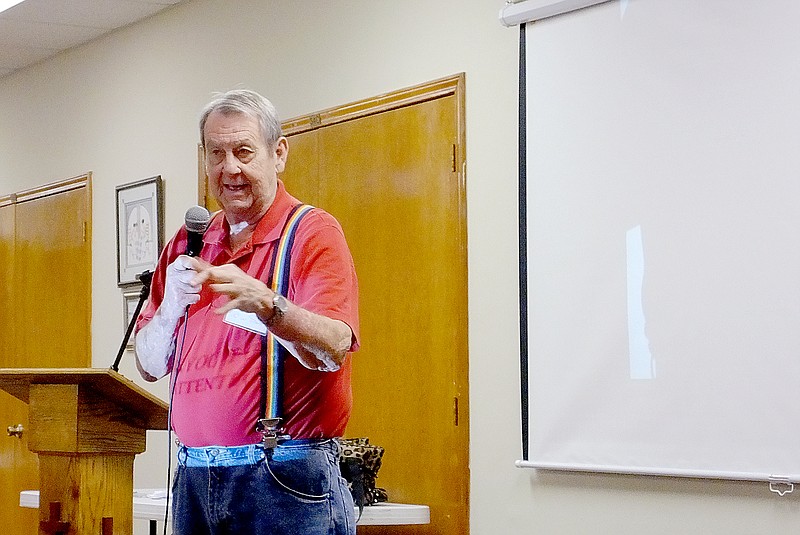For many members of the Bella Vista Garden Club, Master Gardener C.W. Doss presented a valuable reminder. He was the speaker at the club's March meeting.
Eighty percent of the Earth's eco-system depends on pollinators.
A few species, including legumes, tomatoes and potatoes, are self pollinators. Usually, pollen from those plants drift to its destination on the same plant.
Plants that self pollinate, don't need large showy blossoms or fragrances to attract pollinators, he pointed out. Tiny tomato blossoms are a good example of a self pollinator.
But for most plants, the pollen needs to be transported and that's why pollinators are so important.
When pollen is carried from one flower to another, the crops becomes more diverse and more resistant to disease. Plants can only be pollinated from a plant within the same species, he pointed out. So two types of peppers can cross pollinate, but never a pepper and a tomato.
Most people know that bees spread pollen. Honey bees are efficient pollen spreaders, because of their "hairy" body, Doss said. The pollen sticks to the body easily and then drops off at the next destination.
Bees, he said, can be big business. Nesting boards full of leaf cutter bees are brought to alfalfa fields to pollinate and produce alfalfa that in turn is used by the dairy industry.
In a home garden, other insects help with the pollination chores.
Butterflies are good pollinators, which is why gardeners should consider tolerating caterpillars in their garden. The caterpillars will eventually become valuable butterflies.
In fact, he recommended planting butterfly bushes and milkweed to attract butterflies. Gardeners can also put out salt to attract butterflies.
Bats and hummingbirds also help pollinate as does the wind, Doss said.
By concentrating on native plants and paying attention to pollinators, gardeners can become more successful with less effort.
General News on 04/01/2015
